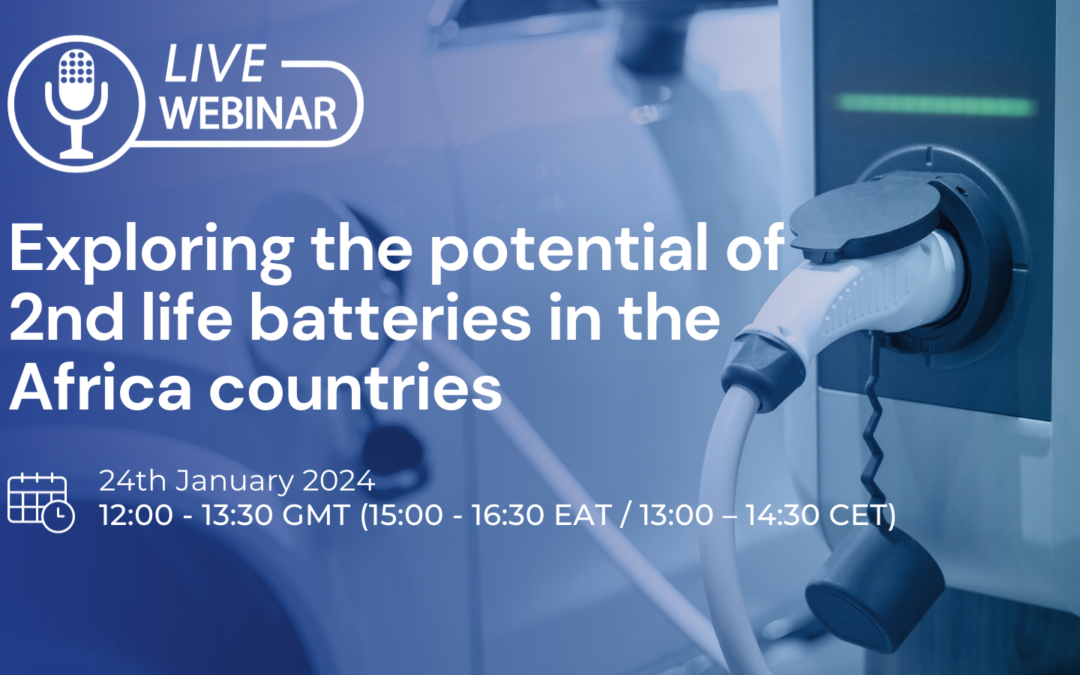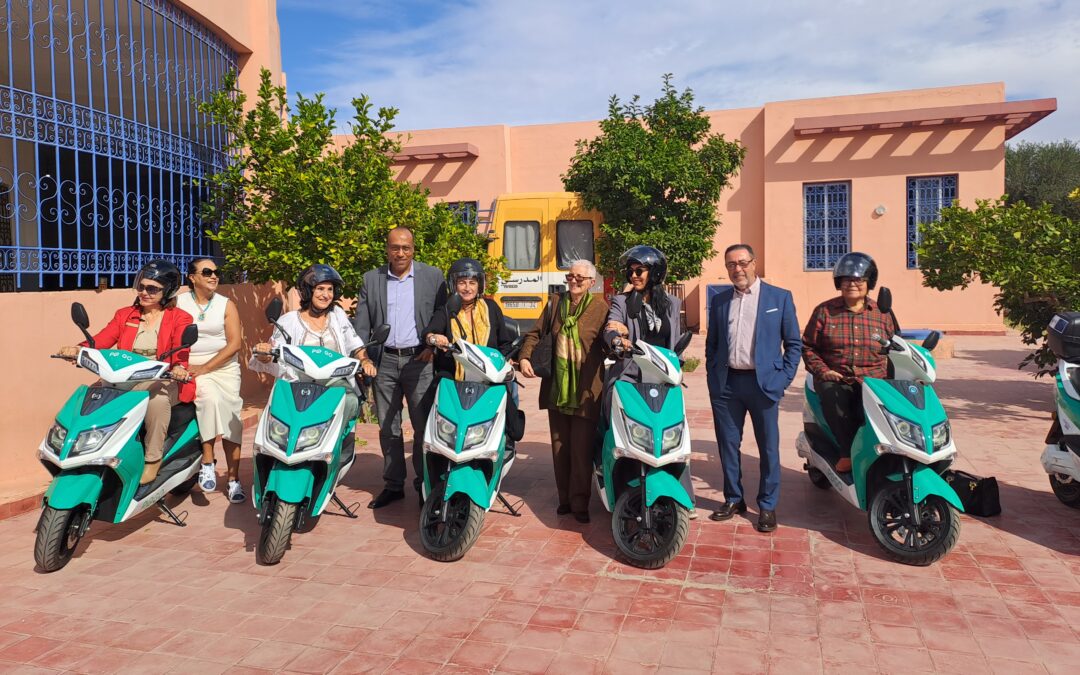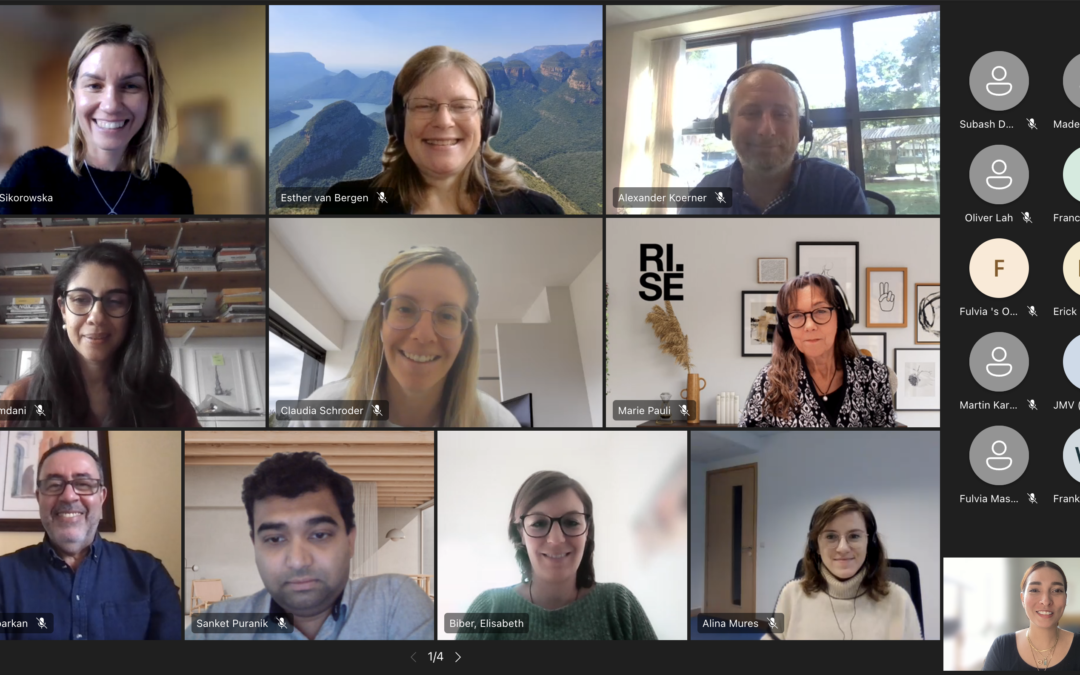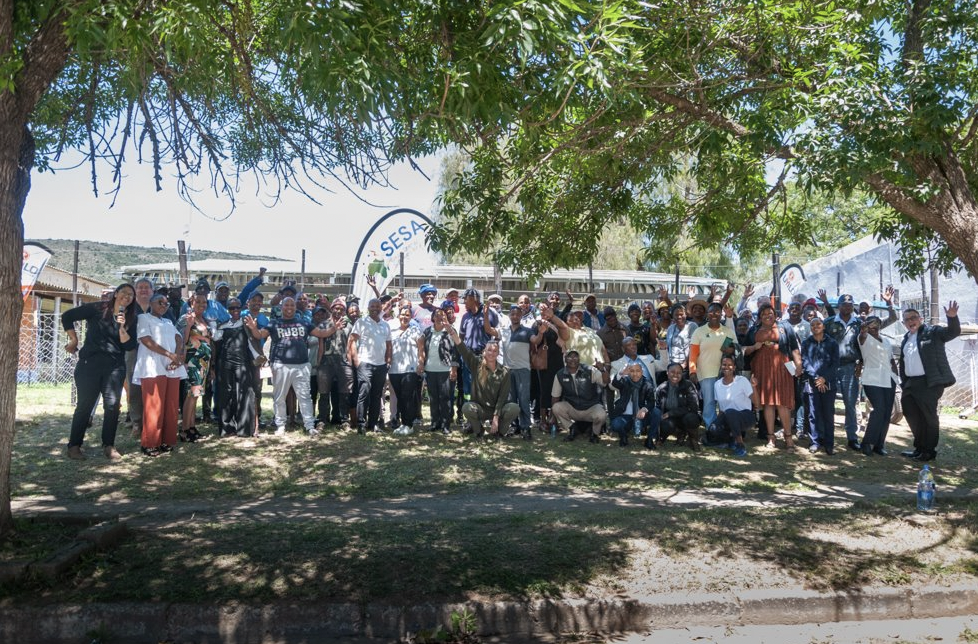Living Labs: a snapshot of their most recent activities
Some of the most relevant updates from the project come from the Living Labs Validation sites.
In Kenya, two demonstration sites have been successfully launched and fully operationalised. These sites feature two self-sufficient solar hubs. The peri-urban demonstration site in Katito is actively testing use cases related to the supply of potable water and electric motorbikes. Meanwhile, the rural site in Kisegi is engaged in testing use cases centred around potable water, fishing lanterns, and solar power irrigation.
WeTu, in collaboration with SESA partners, maintains an ongoing commitment to engage with local communities. This includes implementing educational initiatives aimed at promoting behavioural change. The focus of these initiatives is to underscore the benefits of clean, safe water, advocate for the effective use of energy-efficient appliances and encourage the adoption of circular economy practices.
Ghana‘s rural and urban Living Labs have been recently inaugurated in October 2023. Two SMEs have been selected in Ghana to support the implementation of sustainable energy solutions in the living labs. The goal of the rural living lab is to enhance access to energy, therefore, with the support of NASTECH, the SME selected through the first entrepreneur call led in 2022, AAMMUSTED installed four microgrids (20 MW) in the local communities in Accra and Ashanti. The urban living lab is aiming to promote sustainable cooking solutions, therefore, with the support of Econexus, the second company selected through the call for entrepreneurs, AAMUSTED successfully installed biofuel stoves in three schools in Kumasi.
In Malawi, the living lab is focused on implementing of clean cooking solutions. The Mig biocooker prototype has been developed and is currently being tested to assess its capacity to reduce CO2 emissions. The Biocooker works with sunflower briquettes, bagasse pellets, and wood. Within the Living Lab area, there is a sustainable source of residual biomass from sunflower production, supplemented by additional resources such as peanut shells and bagasse. Briquetting technology has been identified and tested for the efficient use of biomass. To ensure a sustainable and integrated approach to the production and distribution of innovative and environmentally friendly cooking solutions, partners are engaging with local sunflower farmers. Capacity building trainings for local farmers on sustainable agriculture and climate change are expected to take place in November 2023 to facilitate the uptake of these technologies at a local level.
But the progress does not end here. Morocco has made progress in the implementation of the living labs both in the rural and urban sites. The urban living lab, dedicated to supply e-mobility solutions in Marrakech, has reached a functional stage, and is ready for an official launch in November 2023. On the rural front, the living lab, focused on the supply solar PV mini grids for productive use, has made steps toward implementation. The construction and installation of solar PV panels has taken place, and the living lab is expected to be operational beginning in December 2023.
In South Africa, the installation of the off grid containerised energy hub, comprising PV panels in combination with second-life EV batteries for energy stationary storage for community energy access, and for charging a small fleet of micro utility EVs, is complete. The living lab based in the Alicedale community and launched in October 2023 includes a solar PV system, the supply of second life electric vehicle batteries, micro-electric vehicles and as well as an info spot providing access to information on the renewable energy solutions deployed.













Recent Comments